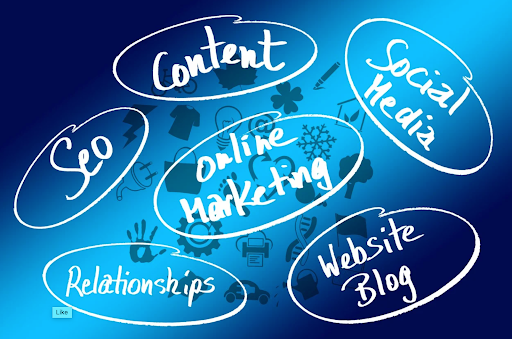In today’s hyper-digital world, having a well-designed website is no longer enough. To truly thrive online, businesses must actively market their sites through strategic and dynamic digital efforts. This is where a website marketing agency plays a critical role. With expert strategies, tools, and execution plans, these agencies empower businesses to boost visibility, attract leads, and drive conversions. Below are seven compelling reasons why partnering with a website marketing agency is essential for modern business success.
1. Strategic Planning that Aligns with Business Goals
A successful marketing effort starts with a strong strategy. Website marketing agencies begin by conducting a thorough analysis of your business goals, target audience, competition, and current digital footprint. This allows them to create a customized marketing roadmap that integrates SEO, content, social media, and PPC campaigns into one cohesive plan.
Example: A local furniture company may struggle to compete with national brands. A website marketing agency can conduct local SEO audits and competitor research to create a campaign targeting specific geographic keywords like “custom wood furniture in Austin.” They would then optimize site content, launch local Google Ads, and implement reputation management tools to elevate the brand’s local profile.
How to Execute:
- Set clear objectives (e.g., increase organic traffic by 30% in 6 months).
- Allow the agency to perform an audit and gap analysis.
- Approve a multi-channel marketing plan that aligns with KPIs.
2. Enhanced SEO Performance
Search engine optimization (SEO) is vital for visibility. A website marketing agency has the technical and creative expertise to enhance both on-page and off-page SEO. This includes optimizing page speed, mobile responsiveness, internal linking, and meta tags, while also building authoritative backlinks and publishing keyword-rich content.
Example: An online education platform worked with an agency to boost SEO rankings. The agency performed keyword research, revamped the blog with educational articles targeting long-tail keywords, and obtained backlinks from industry publications. Within six months, the platform saw a 45% increase in organic traffic.
How to Execute:
- Conduct keyword and competitor research.
- Optimize website architecture and content.
- Regularly monitor rankings and adjust strategy accordingly.
3. Data-Driven Campaigns and Analytics
Website marketing is not guesswork—it’s science. Agencies use tools like Google Analytics, SEMrush, and HubSpot to track user behavior, campaign performance, and ROI. This allows for continuous optimization and scaling of successful strategies.
Example: A SaaS startup partnered with an agency to launch a lead generation campaign. By A/B testing different landing pages and analyzing user drop-off points, they improved form submissions by 38% in three months.
How to Execute:
- Set up dashboards and tracking systems.
- Analyze campaign metrics weekly.
- Adjust based on performance trends and A/B testing results.
4. High-Impact Content Creation
Content is the heart of any digital strategy. Agencies employ skilled writers, designers, and videographers to produce blogs, infographics, videos, and downloadable resources that drive engagement and conversions. Quality content not only helps with SEO but also establishes trust with your audience.
Example: A B2B software provider lacked consistent blog content. Their agency developed an editorial calendar, created SEO-friendly blog posts, and produced explainer videos. Traffic doubled within six months, and leads increased by 22%.
How to Execute:
- Develop a content strategy based on customer journey stages.
- Use SEO best practices in all content types.
- Promote content across email, social, and paid media.
5. Social Media Integration
Social platforms are key for brand awareness, customer engagement, and content distribution. Agencies plan and execute campaigns across Facebook, LinkedIn, Instagram, and more, tailored to each platform’s audience and algorithm.
Example: A fashion e-commerce brand used an agency to launch influencer partnerships on Instagram and run retargeting ads on Facebook. Their average order value increased, and brand reach expanded significantly.
How to Execute:
- Identify ideal platforms based on your audience.
- Develop a content and ad calendar.
- Launch campaigns and monitor engagement metrics regularly.
6. Conversion Rate Optimization (CRO)
Traffic is meaningless without conversions. Agencies use CRO tactics—like heatmaps, A/B testing, and funnel optimization—to ensure your website turns visitors into customers. This leads to higher ROI from all digital efforts.
Example: A dental clinic noticed high traffic but low appointment bookings. The agency simplified the booking form, added social proof, and tested new CTAs. Bookings rose by 60% in eight weeks.
How to Execute:
- Analyze user behavior with tools like Hotjar or Crazy Egg.
- Identify friction points in your funnel.
- Implement and test changes to improve usability and clarity.
7. Scalability and Long-Term Support
As your business grows, so should your marketing efforts. Agencies are equipped to scale campaigns, expand into new markets, and introduce new tactics like email automation or e-commerce integrations.
Example: A wellness brand scaled nationally with the help of their agency, who rolled out nationwide SEO campaigns, expanded PPC ad groups, and localized landing pages for each region.
How to Execute:
- Set quarterly goals for scaling (e.g., expanding into new regions).
- Regularly review performance data with your agency.
- Invest in automation and new tools as needed.
In conclusion, a digital marketing agency is more than just a service provider—it’s a growth partner. From strategic planning to execution and performance tracking, these agencies empower businesses to succeed in the digital arena. By investing in professional marketing expertise, brands can achieve sustainable online growth and stay competitive in a fast-changing market.



